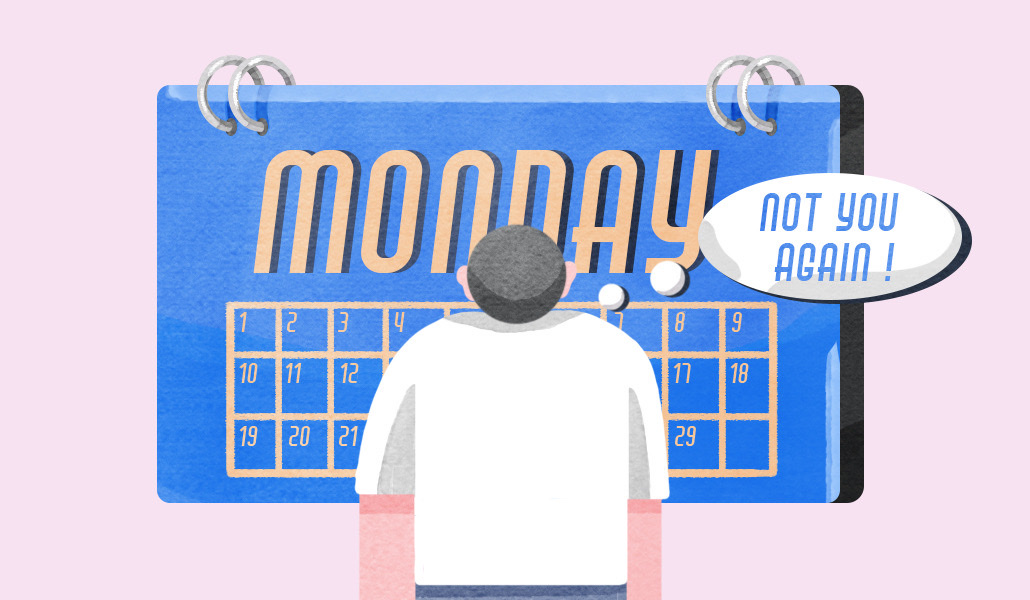‘They’re working but, are they working?’: Q&A with TikTok star Corporate Erin

Erin Throlopolis, aka Corporate Erin, is a manager for managerial managers at managers of McMGMT.
She’s a fictional character, but that corporate mumbo jumbo is exactly what she pokes fun at daily through her TikTok account which has amassed over 300,000 followers.
The part is played by Lisa Beasley, a seasoned comedian based out of Chicago who has graced stages online and in person for many years now. Her character Corporate Erin has resonated with people who are all too familiar with desk jobs at employers that give you a hard time about taking PTO, want you in the office, and send emails regularly with language including “circle back.” Beasley is writing a book about the impact corporate lingo can have and plans to take a diversity, equity and inclusion-focused role in the near future.
We spoke to Beasley, who replied in character as Corporate Erin, to get her take on the latest trends impacting the workplace.
Answers were edited for clarity and flow. Corporate Erin is acted out by a comedian and these are not facts. For an inside look at the interview, head over to WorkLife’s TikTok account for extended coverage.
Tell us why you think Corporate Erin has become so popular and why you think you resonate so deeply with people.

“It’s been a few weeks now and it’s not showing any sign of slowing down. At first, I thought it was just because I was saying a lot of critical things. Now, I think it’s just because I’m pretty. But, if I focus in on, and zero in on, what a lot of people are saying – they’re seeing a lot of me in their workplace. I think it’s interesting because you know, everybody works, and there are hundreds of thousands of comments from people who don’t know each other saying ‘I work with this person.’ So it’s been very interesting, alarming, and kind of hard. But, I can totally understand why people are saying: ‘Hey people are finally paying attention to this sector of what’s going on.’”
You mentioned that you’re pretty. Does that mean you’re a “camera-on” person?
“It’s mandatory. It’s mandatory. I’m working on writing it into the handbook for it to be universal law. I’m hoping to pass something on to Congress that says: ‘Hey, we need cameras on.’ I’m working on that initiative with some politicians as well.”
But we are lucky to be able to have remote work right now. Do you think that’s a good thing or do you think we should be back in the office?
“I really miss being in the office with everybody. I miss having that protocol for face-to-face moments. Sometimes it’s really hard. Sometimes I miss walking around and kind of looking over people’s shoulders saying: ‘Hey, I see you typing an email. Can I help you with that?’ and just reaching over and typing myself. I miss the break room, the happy hours, and the camaraderie that some people think is sparse. I think it’s critical and necessary to team building and morale. I know people are enjoying their time at home and having more freedom to be more flexible. This work-from-home structure has kind of called into question what is flexibility at work when I truly do just miss the 9 to 5 in-office structure.”
So do you think that people should be penalized if they don’t go into the office when they have an RTO mandate?
“Penalize is a strong word. We would like to put you on a performance improvement plan. Do I think people should be penalized? Personally, I think people should be let go if they’re not willing to comply with everything that the company says. It’s critical for people to understand your influence on your own career is hanging in the balance when you don’t comply. It’s not saying that it’s up for punishment, but you kind of punish yourself. You wonder: ‘Hey, why didn’t I get that raise?’ Probably because you’re not giving 110,000%.”
You’ve spoken before about how your co-collaborator Lisa has had to work on repairing trauma caused by the workplace. Do you think that a lot of people suffer in silence at work? What should employers do about it?
“I think people are dying slowly on the inside every day. And it’s not even silently. They’re suffering out loud and crying out for help on the internet every day.
“It’s time for employers to ask the critical questions of what is really keeping people away from wanting to do their job. Sometimes it turns out, it’s not quite the things we think. There was a big call for diversity and inclusion in 2020 that swelled and offered all of these promises. And people are realizing those initiatives were great, but people are also realizing sometimes it’s not about your hair or your religion. Sometimes it’s: ‘Hey, you put something on my cal without asking me and I don’t have any autonomy over my time.’ So until we’re looking at how we’re working, not who we’re working with, things can start to take a pivotal change. A lot of people are noticing those initiatives are well and dandy – also not new – but a hair workshop isn’t going to stop people from feeling like they’re traumatized at work. People need to look at how Americans are working to get to the bottom of why nobody wants to do this. I love it, but a lot of people, it turns out, don’t like working all day.”
I can’t help but notice your accent. Where did that come from?
I like to think I was born out of the womb talking this way. Legally, I can’t talk about my parents so I can’t reference them. But, I am writing a book now and it’s almost done and it’s in the editor’s hands. It’s called Circle Back, Follow Up, Close the Loop. It’s a corporate dictionary to encourage people to talk more like me, and if they don’t understand me, they can reference that book and say: ‘Hey, what is a deliverable, what does it mean to boil the ocean?’ This critical language was just a part of me. My family talks like this. At dinners, we say: ‘Hey, I want to circle back with mashed potatoes, hi, can you follow up with some milk.’”
Does everyone need to speak that way if they want to be successful in the corporate world?
“Well, there’s definitely not room for everyone who doesn’t speak that way in the corporate world. That’s one of the reasons I’m writing the book. I’ve noticed that this language serves as a barrier to entry and if you don’t speak like this, you’re kind of on the outside and kind of unpopular in corporate. When Lisa was first entering corporate, she didn’t understand why they always said circle back. To her, being in conversation about a project, it’s implied that you’re going to talk about it again. It’s like, well duh. It’s a part of it. Growing up, for her, circle back culturally meant something entirely different. When you come in and you can do the job and have the skill set but don’t sound like it, you’re judged and made to feel incompetent and that you’re not worth being there. I find that if you can just say a lot of different things, a lot of different powerful, impactful words, all in a short amount of time in a nice chunky paragraph, then people will respect you.”
I’ve written about how people are skipping their lunch breaks more often to get work done. What do you think about that?
“I personally think that people should eat and work at the same time. Sometimes I’m only able to type and have a smoothie. I understand that some people are not great multitaskers and that they eat several times a day. You have some people who get sleepy after they eat a large meal because they haven’t been disciplined enough to stop eating bread. It’s a wide gamut. I think a question there is autonomy. How much control is someone supposed to have over their day? Some say 100%, but the system doesn’t allow for any of that. The idea of telling an adult when to eat is silly, but here we are. We have to, because if we’re scaling a large organization, how do you oversee all of these people?”
What’s your perspective on the newest generation of the workforce, Gen Zers?
“I have a Gen Z employee, he goes by Corporate Baddie [he is another TikTokker who takes the same approach as Corporate Erin and has nearly one million followers on the app], and it’s been very tough. He’s setting a lot of boundaries and really not understanding how this thing goes. He’s raised in a freer environment where there is a lot of access to information, so it’s kind of hard to grandfather him into a system. They have a lot of questions. At first I was like, ‘aw, the babies have grown up, they’re working now,’ but are they working? They’re kind of doing just enough to get the check. That’s interesting because to drive the business forward, for a corporation to make billions of dollars, we need a lot of people doing a lot of work.
Do you think you’re going to be in the role of manager for managerial managers at managers of McMGMT for a long time?
Initially, I planned to retire in this role and I will always be a manager at heart. You’re the first person I’m telling, but I’m actually looking to get into diversity, equity and inclusion work. I think that might be my next move to kind of make a pivot.
